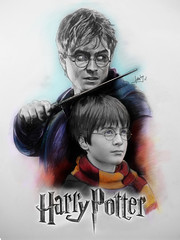AP Literature Terms To Know Flashcards
Terms : Hide Images [1]
| 5547881860 | allegory | hidden meaning typically moral or political |  | 0 |
| 5547881861 | alliteration | the occurrence of the same letter or sound at the beginning of words |  | 1 |
| 5547881862 | allusion | reference to an outside work (biblical, historical, mythological) |  | 2 |
| 5547881864 | analogy | comparison between two things, typically on the basis of their structure for explanation/clarification |  | 3 |
| 5547881866 | antagonist/protagonist | antagonist=adversary protagonist=leading character in literary work |  | 4 |
| 5547881870 | bildungsroman | a novel dealing with one person's formative years or spiritual education |  | 5 |
| 5547881874 | catharsis | the purging or purification of the emotions through the evocation of pity and fear, as in tragedy |  | 6 |
| 5547881880 | connotation | the associated or secondary meaning of a word in addition to its primary meaning |  | 7 |
| 5547881882 | denotation | literal meaning of the word "dictionary definition" |  | 8 |
| 5547881884 | diction | word choice |  | 9 |
| 5547881885 | didactic | intended to teach, particularly in having moral instruction as an ulterior motive |  | 10 |
| 5547881887 | double-entendre | a phrase that could have two meanings or that could be understood in two different ways |  | 11 |
| 5547881897 | figurative language | uses words or expressions wth a meaning that is different from the literal interpretation |  | 12 |
| 5547881900 | foil | character serves to bring out attributes of another character |  | 13 |
| 5547881902 | genre | category of literary composition |  | 14 |
| 5547881905 | historical narrative | takes place in the past, but is a made up story (based on real aspects of the past) |  | 15 |
| 5547881910 | hyperbole | exaggeration-rhetorical device |  | 16 |
| 5547881911 | idiom | phrase not taken literally...a group of words established by usage as having a meaning not deducible from those of the individual words (e.g., rain cats and dogs, see the light ) |  | 17 |
| 5547881912 | imagery | description that appeals to our five senses |  | 18 |
| 5547881916 | inference | a conclusion arrived at through logical processes |  | 19 |
| 5547881917 | irony | conveys a meaning that is opposite of its literal meaning |  | 20 |
| 5547881921 | metaphor | comparison using is |  | 21 |
| 5547881922 | metonymy | word or phrase that is used to stand in for another word (ex: suit for business executive, or the track for horse racing) |  | 22 |
| 5547881923 | mood | overall atmosphere created by the tone |  | 23 |
| 5547881925 | motif | a recurring element that has symbolic significance in a story |  | 24 |
| 5547881928 | novel | a long narrative (prose) which describes fictional characters and events |  | 25 |
| 5547881929 | novella | shorter than a novel |  | 26 |
| 5547881930 | nuance | a subtle degree of difference in meaning/feeling/tone |  | 27 |
| 5547881931 | onomatopoeia | mimics sound of the action it refers to |  | 28 |
| 5547881932 | oxymoron | two contradictory words put together in one phrase |  | 29 |
| 5547881933 | paradox | a statement that contradicts itself but can still be true |  | 30 |
| 5547881936 | parody | work that closely imitates for comic effect or ridicule |  | 31 |
| 5547881937 | pedantic | overly concerned with details/overly scholarly (word, phrase, or general tone) |  | 32 |
| 5547881939 | personification | giving human actions to non-living things |  | 33 |
| 5547881943 | point of view | perspective the story is told from |  | 34 |
| 5547881944 | prose | "ordinary writing"/paragraph form |  | 35 |
| 5547881947 | pun | play on words |  | 36 |
| 5547881948 | realism | portrays life in a faithful, accurate manner unclouded by false ideals |  | 37 |
| 5547881949 | repetition | repeating a word |  | 38 |
| 5547881951 | rhetorical devices | technique an author uses to convey a meaning with the goal of persuading them |  | 39 |
| 5547881955 | satire | vices, follies, etc. are held up to ridicule ideally with the intent of shaming |  | 40 |
| 5547881957 | simile | comparison using like or as |  | 41 |
| 5547881959 | style | the way an author writes (diction, syntax, figurative language) |  | 42 |
| 5547881961 | symbol | an object (or word) to represent an abstract idea |  | 43 |
| 5547881962 | syntax | sentence structure; how words and phrases are arranged |  | 44 |
| 5547881967 | tone | author's attitude toward the subject |  | 45 |
| 5547881968 | tragedy | main character is brought to ruin or suffers extreme sorrow due to their tragic flaw |  | 46 |
| 5547881975 | Romanticism | emphasized inspiration, subjectivity, and primacy of the individual |  | 47 |
| 5547881976 | Victorianism | novels were much more popular as literacy rates rose (a focus on the highly moralistic, straitlaced language and behavior of Victorian morality) |  | 48 |
